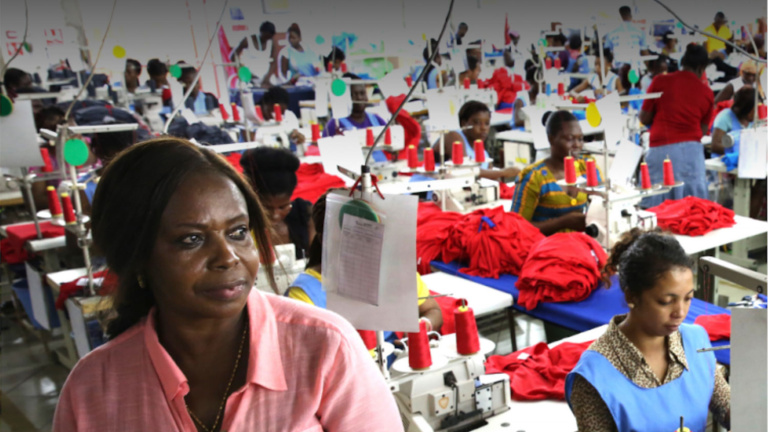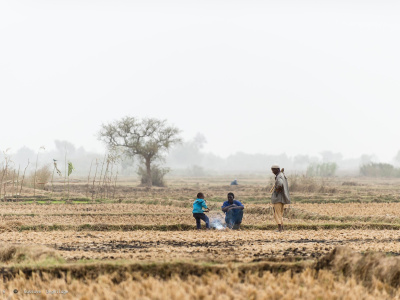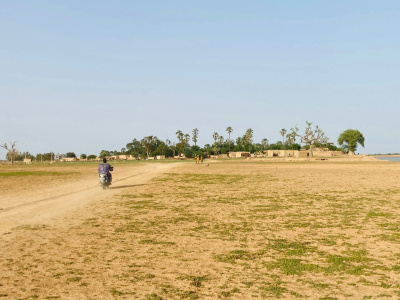
The price of oil? Extractive development and conflict risk in Kenya
While Kenya moves forward once again with developing its oil resources, the recent ‘hostage situation’ at a Tullow Oil-owned camp in Turkana, Northern Kenya in January 2018 shows that concerns over who is benefiting from extractives development continues to create conflict risks.
Oil development seems to be moving back up the agenda in Kenya, with Total’s recent acquisition of its first onshore stake in one of Kenya’s Turkana oil blocks and renewed discussion of a Northern Kenya pipeline following Uganda’s decision to pipe its oil through neighbouring. Tanzania Extractives development forms a key part of Kenya’s development blueprint, Kenya Vision 2030. However, as the 2017 elections demonstrated, political and other grievances continue to regularly lead to violence in Kenya. Parts of the country, particularly the northern counties, are affected by recurrent cycles of conflict. For investors and the Kenyan government, this presents risks to growing the extractives sector and in terms of conflict, it will be local communities who will be most affected by conflict-insensitive development.
Conflict sensitivity and the extractives
For companies operating in fragile contexts (as well as the governments that license them), there is a critical need to be mindful of the two-way dynamics between extractives development and its context. This is extremely relevant to an emerging, soon-to-be middle-income economy like Kenya keen to capitalise on its natural resources. Since the discovery of oil in March 2012 in Turkana by Tullow Oil, the process of exploration and development has been contested by communities and local politicians. Protests over the allocation of jobs and other opportunities led Tullow to suspend its operations in October 2013.
Since International Alert published its ‘Conflict-sensitive business practice‘ in 2005, the field of business and human rights has emerged as a highly influential area of theory and practice. This guidance was further updated in 2018 and International Alert has built considerable experience working with the extractives industry promoting accountability and conflict sensitivity in fragile contexts. Peaceful economic development, that delivers benefits both to the companies involved and the local communities, can occur when conflict dynamics are understood, and measures are put in place to ensure that peace-conducive economic development occurs. Drawing on this experience, there are several key ‘risk factors’ in the Kenyan context that have the potential to either exacerbate existing conflicts or create new tensions around the extractives industry.
Land and governance
The interlinked issues of land and governance represent the greatest risks to the peaceful development of extractive industries in Kenya. Disputes over land ownership and access drive and sustain many of the existing conflicts. Titling practices are frequently linked to administrative irregularities, political cronyism and historical injustices relating to the colonial era and post-independence land distribution and can often lead to communities not owning the titles to the land they live and work on. This situation is further complicated by a complex regulatory framework on land ownership as well as weak institutions and unclear legislation regarding compensation for land dispossession. In many parts of the pastoralist areas where much of the oil exploration is taking place, land is classed as ‘community’ or ‘trust’ land. It is governed by customary tenure systems and a complex raft of legislation. While the 2010 constitution and 2016 Community Land Act started to clarify this situation, there are still uncertainties in how community-owned land is to be managed.
Attempts by elites to control soon-to-be valuable land can drive serious conflict. Extractives operations and related infrastructure (particularly the long-awaited development of the Lamu Port-South Sudan-Ethiopia-Transport (LAPSSET) Corridor pipeline project to run across Northern Kenya), have already led to land speculation and land grabbing as well as conflicts between communities to secure land access. Some of these land grabs are perceived as being politically instigated.
Land is not the only natural resource affected by extractives development. In Northern Kenya, water scarcity is a particular environmental concern. In Turkana, water scarcity is a critical issue due to increasingly unpredictable rainy seasons, which put pressure on pastoralists’ dry season grazing land. This in turn creates competition over grazing land and water which raises the likelihood of conflict. Oil exploration and production requires considerable amounts of water and potentially increases pressure on existing demands creating conflict over water usage.
The interplay between extractives development and political dynamics can exacerbate conflict where there is a risk that development is leveraged to further political and personal agendas, such as enriching individuals or embedding political actors. Communities can become particularly vulnerable to being co-opted for political and/or corrupt ends. Kenyan politics has long been characterised by a ‘winner takes all’ approach to public resources which, given the levels of revenue anticipated from the extractives, has the potential to exacerbate conflict.
While devolution radically altered the political landscape in Kenya in 2013, the embedding of the new devolved system is still an ongoing process representing both a risk and opportunity for extractives development. Some of the legislation in Kenya, such as the existing Petroleum Act, has not been updated to take the new devolved system into account. The new Petroleum (Exploration, Development, and Production) Bill 2015 is set to replace the current act, but has not yet been passed. Disputes over the ‘fair’ levels of revenue sharing from the extractives have the potential to feed into existing tensions between the national and county governments (as was seen in March 2017 in the public dispute over the sharing of oil revenues between the President and the Governor of Turkana County). While there are tensions between counties and the national government, the county governments are key actors in determining the conflict sensitivity of extractives development in Kenya, both as conflict actors and potential ‘peace-supporting’ actors given their relative proximity to communities and their concerns.
Lack of community participation
Disparities between what companies and/or governments perceive as meaningful consultation, and how communities view this, can be another key source of grievance. Expectations of the extractives in terms of economic development and specific social investments are high, particularly in places like Turkana. Communities here have expressed concern over the role of politicians and some community leaders in representing their interests to oil companies. Sometimes, community engagement or awareness raising has taken place too late for them to negotiate with companies on land access or benefits.
Community expectations around local employment and business opportunities are usually very high in areas of new extractives development. While a Local Content Bill was tabled in Kenya in 2016 that seeks to ensure companies commit to maximising local employment, the bill defines ‘local’ broadly as Kenyan-owned firms and entities based in the country. In Turkana, while some of these expectations are being met through jobs and peripheral business opportunities (or social investments by Tullow Oil, such as school building) where these expectations remain unmet (or are unrealistic), there is a source of frustration and therefore conflict. Particularly in relation to employment, the oil industry is characterised by fluctuating manpower requirements.
Security concerns
In responding to community grievances, the use of public (as well as private) security personnel needs to be carefully managed by companies and their government partners as there are risks of exacerbating grievances by using security personnel to respond to protests. Extractives companies operating in insecure areas like Northern Kenya will often require the services of security providers (public and private) to protect their assets, infrastructure and personnel. In many of the areas of Northern Kenya where state security presence is limited, some security is often delegated to the National Police Reserves (NPR) who are recruited from local communities and armed by the police, but provided with limited training, oversight or payment. Their use in guarding private installations connected to the oil industry has can leave communities vulnerable, given that the NPR often provide the only security available.
Conclusions and recommendations
While the continued growth of the extractives sector in Kenya can bring economic and development dividends, there are clear risks relating to its potential to create new sources of tension or exacerbate existing conflicts. It is therefore important that the relevant stakeholders ensure that activities supporting the sector are sensitive to conflict dynamics. Based on this, there are some clear recommendations to be made to extractives companies, as well as the Government of Kenya, at national and county level, and development partners.
The Government of Kenya should ensure legislation on extractive industry regulation (particularly the 2015 Petroleum Bill) and land use/ownership are not only enacted and harmonised but popularised, so that they are available for use by civil society organisations, county governments and communities. They should also develop due diligence guidance for extractives investors in Kenya and clarify how public security personnel can be used for protecting private assets and personnel so that protection for the extractives sector does not leave communities vulnerable.
The County Governments can play a key role in ensuring that issues around the extractives are addressed. While there have been a lot of platforms and discussions in Nairobi, efforts are needed so this takes place at the county level as well. For this to be effective, the capacity of county governments to engage with the extractives sector needs to be built. Furthermore, it is critical that communication remains open between the national and county governments on these issues.
Companies should ensure their operational grievance mechanisms are strong and align with the UN Guiding Principles on Business and Human Rights (UNGPs) effectiveness criteria and should continue (or start) progress on the implementation of the Voluntary Principles for Security and Human Rights (an initiative designed to guide companies on maintaining safety and security while respecting human rights). Companies should explore alternative community engagement practices, such as developing community participatory monitoring mechanisms to address concerns. Many companies are implementing such programmes in other countries which could be used for learning and adaptation to the Kenyan context. Companies, through their social investment programmes, could explore supporting the development of other economic activities (such as agribusiness) to diversify local economies and take pressure off the limitations of the extractives industry.
Development partners should support the capacity building of NGOs, CSOs and community leaders to engage with extractives development (such as interpreting and communicating the findings of EIAs and social impact assessments) so that they can effectively engage with companies and the government and better communicate to and represent the interests of the communities and stakeholders they represent. They should also prepare communities to benefit from local content opportunities, particularly being mindful that most economic opportunities will come from extractives supply chains and markets, rather than through direct employment, and that local economies are built in a way that is compatible with the market.
About the Author
George Grayson is International Alert’s Programme Development and Assessment Manager for the Horn of Africa region (GGrayson@ international-alert.org /www.international-alert.org)
Read the full magazine issue









